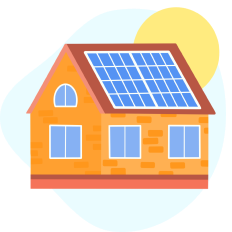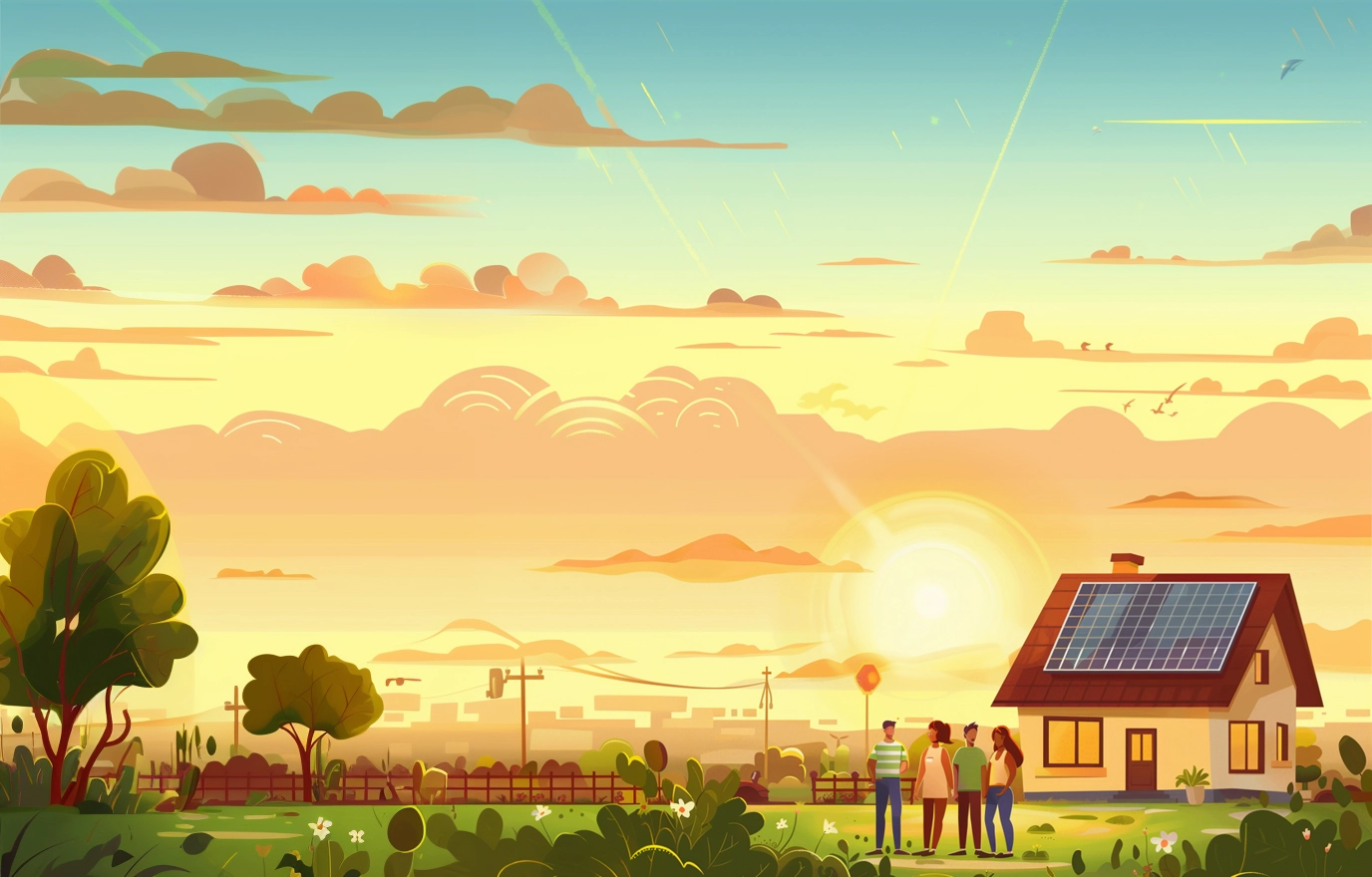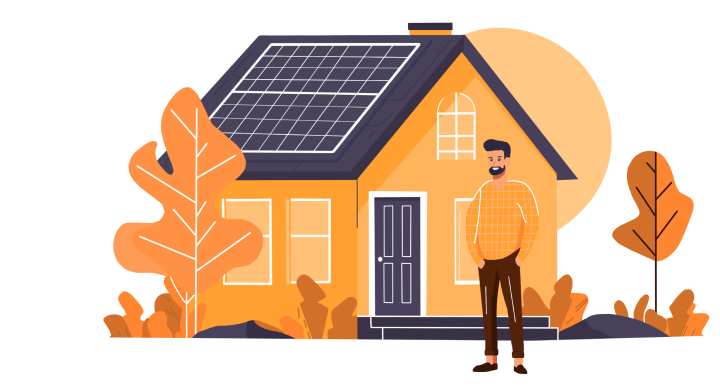If you've ever been curious about residential solar installation, then you're not alone. Many homeowners want to harness the power of the sun to meet their power needs sustainably. After all, solar power allows you to contribute to a greener environment by reducing your carbon footprint via clean energy.
However, beyond its eco-friendly impact on our planet, is solar panel system installation worthwhile?
Quick Answer: Yes, residential solar installation is worth it.
There's great potential for long-term savings with solar installation.
Imagine not having to pay a hefty electricity bill each month, which means you can redirect those savings toward other important household expenses.
While the initial investment may seem daunting, future financial solar energy benefits—often through energy savings and available incentives—far outweigh the upfront costs. Local agencies and governments frequently offer tax credits and incentives that can offset the home solar installation cost.
Additionally, financial options like loans, leases and power purchase agreements can help spread out the costs, making the process of installing rooftop solar panels more accessible for many homeowners.
Solar installation provides more energy independence for homeowners.
After the residential solar installation, your system also minimizes dependence on unpredictable utility rates and the grid. This means there's more stability and predictability in your energy expenses, which is particularly valuable during periods of fluctuating energy prices or power outages.
Keep these in mind when considering solar providers.
Is your roof or installation surface compatible with the solar panel system?
For solar panels to work effectively, there must be sufficient space, structural integrity and limited shading on the roof. Factors like the roof's size, slope and the extent to which it's covered by nearby trees or buildings can impact the system's overall efficiency and lifespan.
With this, always ask solar energy companies if they offer a free or in-depth inspection to evaluate your roof's condition and compatibility with the solar panel system you wish to install. Their expert ocular can help you avoid unnecessary complications when it comes to solar panels and installation.
What is the sunlight exposure for your installation surface?
Sunlight exposure is a key factor for residential solar installation and overall power draw efficiency, especially since it's the amount of direct sunlight your roof or alternative surface receives during the day.
With this, the angle of your roof, nearby shading sources and your specific geographical location significantly influence how much sunlight your solar panels will capture. For instance, a roof that faces southward with minimal shading is typically ideal for maximizing the energy your panels produce.
Conversely, roofs with considerable shade or those that face away from the primary sunlight direction may require adjustments like trimming trees or using optimizers like tilt frames. In general, when you install a solar panel setup, more sunlight means more energy production and efficiency.
What other services or equipment are included in your solar installation quote?
In addition to the panels themselves, a residential solar installation quote may include inverters, mounting hardware and the electrical parts to connect the system to your home's power supply.
The home solar energy quote may also account for various services such as installation, permitting fees and inspections to meet local regulations. Notably, some quotes may offer extras like system monitoring, extended warranties and maintenance packages to keep your system running smoothly over the years.
To avoid surprises, always ask for an itemized quote for the overall cost of solar installation for homes. This way, you can make an informed decision since you'll clearly see what you are getting.
Solar Energy Host can help you find great providers in your area.
We connect you with reputable solar company installers to help ensure you receive competitive quotes for your project.
We're happy to streamline the process of finding and comparing providers, saving you valuable time and effort. Many homeowners have successfully transitioned to solar energy with our quote compilation service.
At the end of the day, we work on connecting homeowners with residential solar installation services that align with their specific budget, promoting a seamless and reliable transition to renewable energy.
Frequently Asked Questions (FAQ)
Do solar panels work in areas with frequent cloudy weather?
Yes! If you're considering a residential solar installation, keep in mind that the panels can still generate electricity in cloudy weather, though their efficiency may be less compared to more sunny areas.
Even on cloudy days, your solar panels can capture and convert sunlight into energy. While you might not achieve the same high energy output as on a sunny day, having modern solar panels installed means you can generate power in various weather conditions, so you can get a relatively continuous power flow.
What happens if my solar panels don't produce enough electricity?
If your solar panels don't produce enough electricity for your needs and you are connected to your local power grid, your home system may draw the necessary power from the grid to make up for the shortfall.
In case of insufficient solar power generation, being connected to the grid ensures that your household doesn't experience any power gaps and gets a reliable backup. Alternatively, you can use solar batteries to store excess energy generated during sunny periods. This power can be used during low production times, like at night or on particularly cloudy days.
Ultimately, discussing your options with your chosen solar panel installation company can help you make an informed decision about including battery storage in your system.
Do I need to be connected to the grid if I have solar panels?
No, it's not a requirement.
Generally, residential solar panel systems are connected to the local power grid so that homeowners have access to power during periods when solar energy production is insufficient.
However, some homeowners prefer to be completely off-grid solar installation, relying solely on panels and batteries for their energy. While this can be an excellent choice, it's a more independent but complex and expensive setup that should be thoroughly discussed with your provider.
We're here to welcome you into the renewable energy scene.
At Solar Energy Host, we can help you with your residential solar installation goals. To get competitive quotes from different reputable providers, you can just send us basic contact information and standard details like your current electricity bill. We'll get back to you with a list of estimates. Try us out today!




















